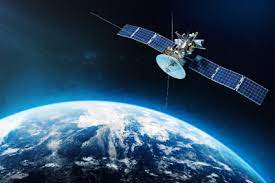Côte d’Ivoire will launch its first satellite in two years. Astrophysicists and geologists tell The Conversation Africa about the potential benefits of this finding and how the country expects to realise its space sector objectives.
What satellite will Côte d’Ivoire launch?
Nanosatellite YAM-SAT-CI 01 will observe Earth. Nanosatellites weigh 1–10kg. It will have a camera to take pictures of the beaches, forests, natural parks, and cities.
100% Ivorian satellite construction. Universal Konstructors Associated, a private Ivorian firm that promotes scientific and technological growth in Côte d’Ivoire, and the Institut National Polytechnique Félix Houphouët-Boigny of Yamoussoukro will handle it.
It’s the first step towards advanced satellites and sensors with multiple uses. They can map national security threats, illegal migration, deforestation, illicit gold mining, soil humidity, and water reserves. They mitigate droughts and floods.
Such a satellite could help Côte d’Ivoire control artisanal mining and fight criminal operations and environmental harm.
These applications use AI-based image processing methods.
Read also: Senegal completes second phase of HYLAS 4 satellite gateway Station
What are the other benefits and spinoffs?
Earth observation informs agriculture, disaster management, and urban development. The satellite monitors vegetation health, maps water resources, and analyses urban growth.
Technology aids national scientific and economic development.
Satellite construction and launch usually involve space industry capacity building. Engineers and scientists develop sensors and the ground segment to track and communicate with the satellite.
Such efforts also promote space science technology. Satellites orbiting Earth may give more Earth observation data and products after a launch.
This project’s participants
This scientific, technical, and political adventure involves academia and industry.
Space and aeronautics programmes are planned at the Institut National Polytechnique Félix Houphouet-Boigny. New engineers will profit from this. An Ivoirian Astronomy Association was founded. Astronomy and space science outreach will improve scientific literacy. It may encourage young scientists.
Finally, the University Félix Houphouët-Boigny’s Centre Universitaire de Recherche et d’Application en Télédétection observes Earth from orbit. Students may help design, mission strategy, and use Côte d’Ivoire’s satellites.
Avanti seeks FG’s support on Satellite Connectivity expansion
Space technology in other African nations
Space in Africa’s 2022 space industry research predicts a US$22.64 billion market in 2026. US$19.49 billion in 2021. In 2022, African governments allocated US$534.9 million to space programmes, up from US$523.2 million in 2021. These expenditures suggest African nations are poised to exploit space technology to address continent-wide issues.
Kenya launched its first satellite, Taifa-1, with SpaceX on April 23, 2023. Kenya’s optical camera-equipped satellite will monitor agriculture and the environment.
The first Tunisian-made satellite was launched in 2021. Last year, Zimbabwe, Uganda, Egypt, and Angola launched satellites. President Macky Sall established the Senegalese Agency of Space Studies in April 2023.
Egypt, Nigeria, and South Africa lead African space development. The South African National Space Agency and local institutions launched ZACube, a nanosatellite, in December 2018. It protects South African coastal maritime transportation.
Nigeria’s National Space Research and Development Agency was founded in 1999. Launched five satellites since 2003. Nigeria and Rwanda signed the NASA-led Artemis Accords in December 2022.
It’s apparent that more and more African governments are investing in space technologies.
The first stage is to educate the populace about space and the benefits of investing in space technologies. We need to build space-related training courses and promote space research in African countries.




